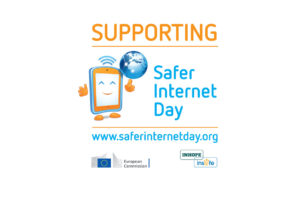
Though it’s less popular than it once was, digital piracy can have unforeseen consequences for you and your family.
Do you remember the piracy warnings that used to play on a video or DVD before you watched it?
They would warn you that stealing a movie or TV show was just as illegal as stealing anything else and that you could be prosecuted. While those warnings may be a thing of the past, piracy is not. It has just evolved.
Digital piracy is the practice of downloading and distributing copyrighted content digitally without permission, such as music or software.
It also includes streaming content like movies or TV shows without paying for it. Though the rise of legitimate streaming services such as Netflix, Amazon Prime, Disney+ and NowTV has lowered rates of digital piracy, parents should still be aware of the risks.
What's the Harm?
People may say “What’s the harm? It’s only one movie/song/TV show!” However, digital piracy can have unforeseen or unintentional consequences.
The websites visited to watch or download pirated content tend to have a lot of pop-ups and potential viruses that can harm your devices.
For example, if you or your child downloads a movie, there may be a virus or malware hidden in that file that could sit on your device, unbeknownst to anyone.
Malware is particularly harmful as it can harvest personal data without your consent.
Another problem is that these websites tend to be unmoderated and have the potential to expose children to inappropriate or explicit content such as pornography.
An unmoderated website means that there are no parental controls which raises this risk further. There are also legal implications if someone is caught committing digital piracy.
The downloading and sharing of copyrighted material without permission is illegal in Ireland.
Keeping Children Safe
Parental controls are the easiest way to ensure that your children aren’t seeing inappropriate content. Setting this up may vary from device to device so check the manual or online guides for instructions when doing so. Remember that you can set parental controls up on smart TVs too so don’t overlook them!
Another thing you can do is research the different streaming apps and websites. Ensure you understand the difference between legitimate and illegal apps and websites so you can recognise if your child is illegally streaming something.
Finally, setting online boundaries for your children can be extremely helpful. Don’t be afraid to talk to your children about these boundaries and why you’re setting them.
Remind them that you’re there as a non-judgemental person if they want to talk about things that they have seen online that have upset them.
An open dialogue is the best way to protect your children online and will help you feel better about giving your children more independence online too!
Points to Consider
- Digital piracy is the practice of downloading and distributing copyrighted content digitally without permission, such as music or software.
- The websites visited to watch or download pirated content tend to have a lot of pop-ups and potential viruses that can harm your devices.
- These websites tend to be unmoderated and have the potential to expose children to inappropriate or explicit content such as pornography.
- Parental controls are the easiest way to ensure that your children aren’t seeing inappropriate content.


